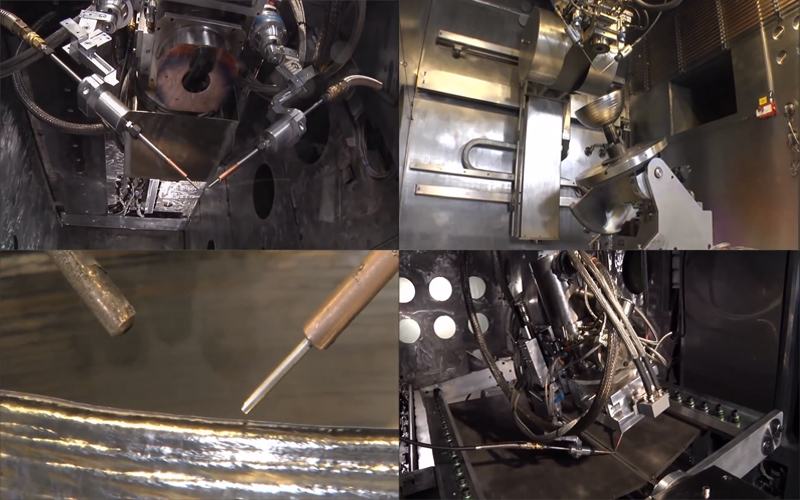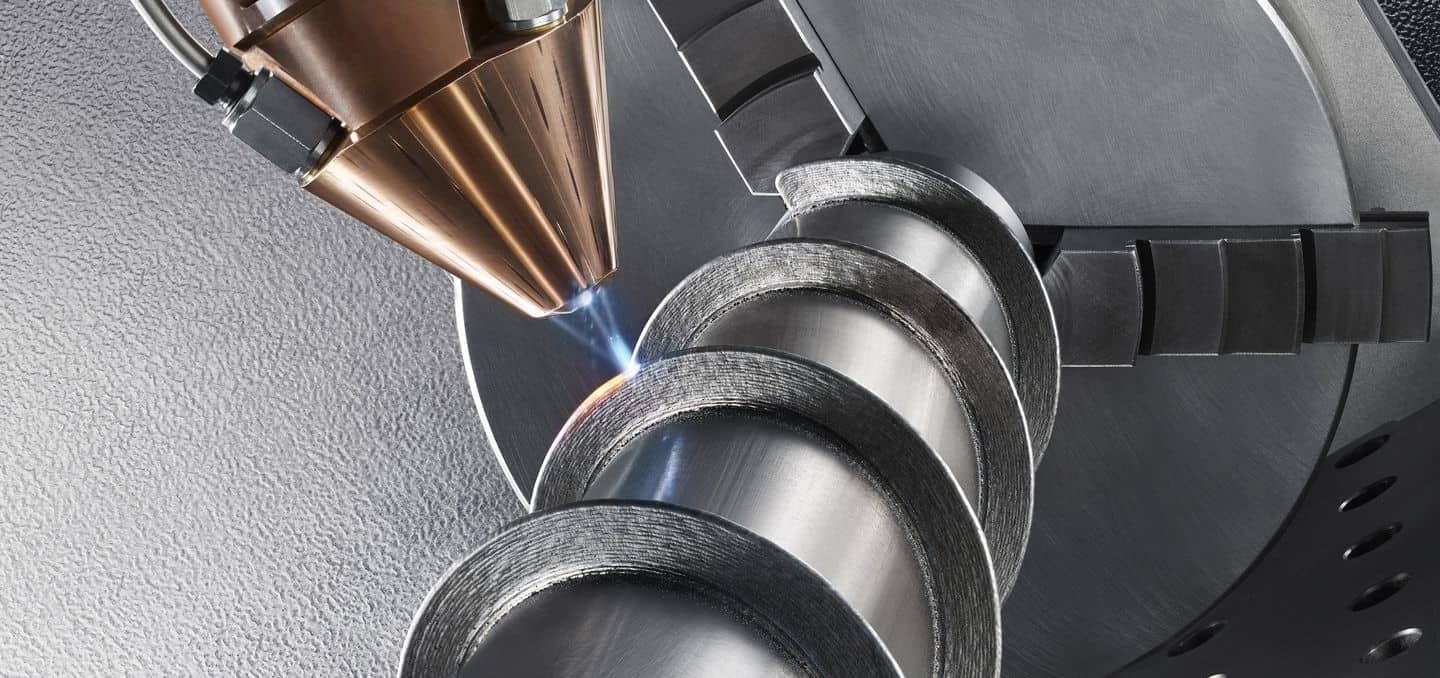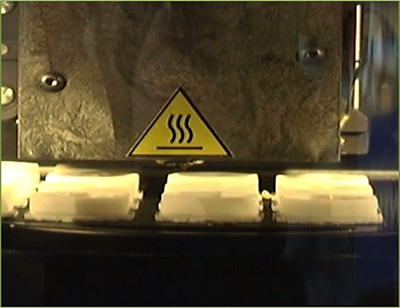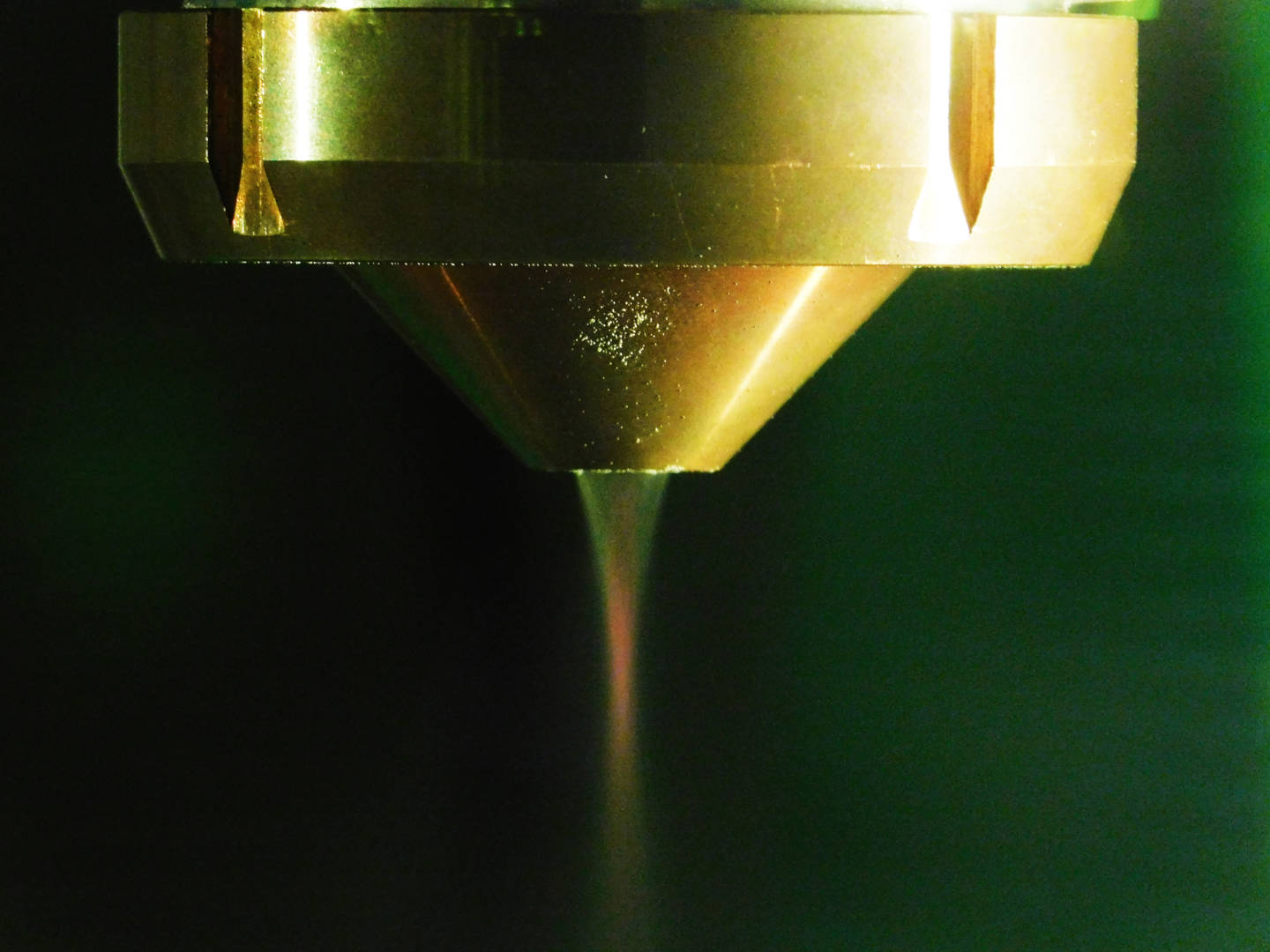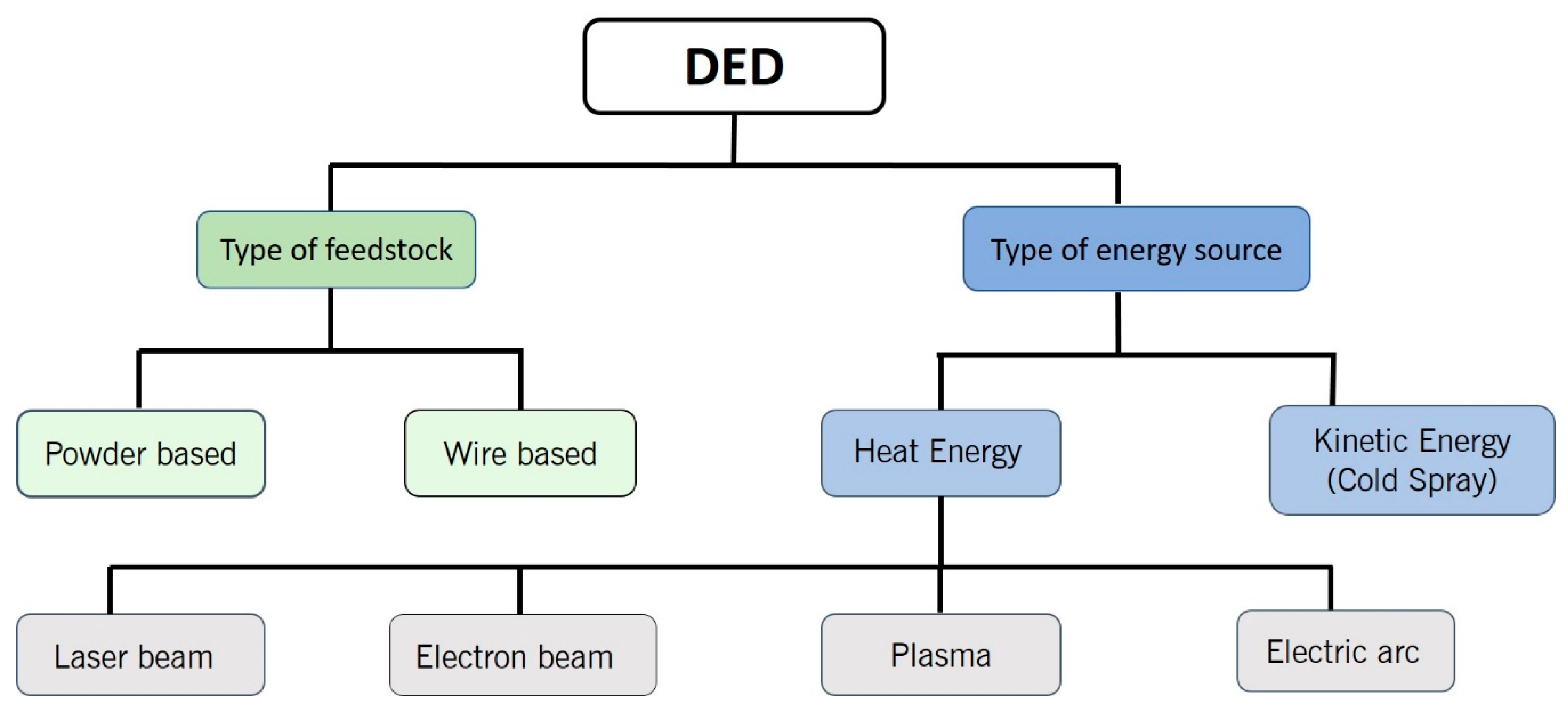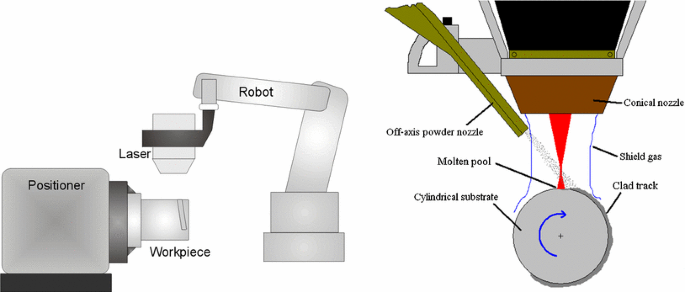Directed energy deposition ded is a kind of additive manufacturing am technology based on synchronous powder feeding or wire feeding.
Directed energy deposition of ceramics.
In powder fed directed energy deposition a high power laser is used to melt metal powder supplied to the focus of the laser beam.
The laser beam typically travels through the center of the deposition head and is focused to a small spot by one or more lenses.
These techniques incorporate the characteristics of both power bed fusion and.
Directed energy deposition of zirconia toughened alumina ceramic.
Thus this technology is often referred to as metal deposition technology.
This additive manufacturing technique is mostly used with metal powders or wire source materials.
Directed energy deposition ded is a category of metal additive manufacturing am that utilizes robotic welding processes to print at high deposition rates but with relatively low resolution.
Ded systems use an electric arc plasma laser or electron beam to melt metal feedstock wire or powder into a molten deposit pool.
Directed energy deposition ded processes enable the creation of parts by melting material as it is being deposited.
Novel microstructure formation and mechanical performance yingbin hu yingbin hu department of industrial manufacturing and systems engineering texas tech university lubbock tx 79409.
The directed energy deposition ded 3d printing technology also known as direct energy deposition creates parts by directly melting materials and deposing them on the workpiece layer by layer.
Directed energy deposition generally they all deposit a melted metal powder or wire on a build service.
Directed energy deposition ded is a 3d printing technology specifically used to create 3d models from metals and alloys.
The technique can be applied for making 3d parts or objects from polymers glass or ceramics but is not popular for that.
Directed energy deposition ded powder fed directed energy deposition.
Directed energy deposition ded covers a range of terminology.
The nozzle that deposits the material is typically mounted on a five axis arm and then.
This technique is quite commonly used for repair of existing 3d models built using metal or alloy many times the technique is used for adding.
Although this basic approach can work for polymers ceramics and metal matrix composites it is predominantly used for metal powders.



